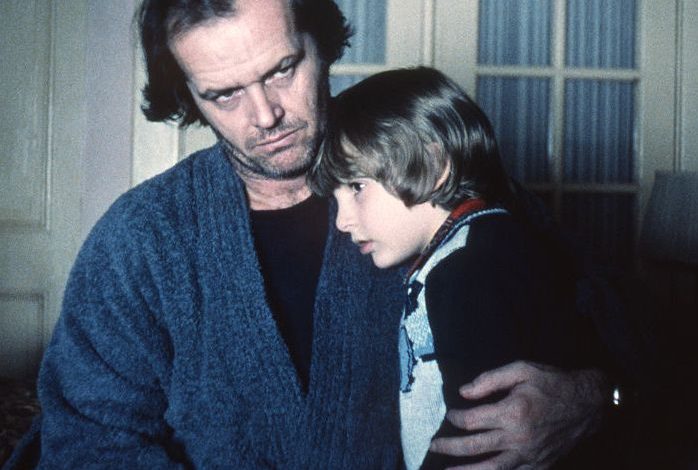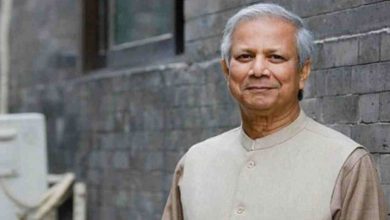
The Shining: Few books have left as indelible a mark on the horror genre as Stephen King’s “The Shining.” This novel, with its chilling narrative and complex characters, has captivated readers since its release in 1977. But what makes “The Shining” such an enduring work of horror literature? Let’s delve into the mystery and brilliance of Stephen King’s masterpiece. The Shining:
Background of Stephen King
To understand “The Shining,” one must first appreciate the mind behind it. Stephen King, often dubbed the “King of Horror,” has been a prolific writer with numerous bestsellers. Born in 1947, King’s works are known for their deep psychological insights and ability to tap into common fears. His influence on the horror genre is unparalleled, shaping modern horror literature and film.
Inspiration Behind “The Shining”
The origins of “The Shining” are rooted in King’s own experiences. A stay at the Stanley Hotel in Colorado provided the eerie inspiration for the Overlook Hotel. King and his wife were the only guests at the vast, almost empty hotel, which spurred the novel’s haunted setting. King’s personal battles with alcoholism and his fears of inadequacy as a writer also influenced the story, making it a deeply personal work. The Shining:
Plot Summary
Setting the Stage: The Overlook Hotel
“The Shining” is set in the isolated Overlook Hotel, an imposing structure in the Colorado Rockies. The hotel’s history of violence and supernatural occurrences sets the stage for the unfolding horror.
Introduction of the Torrance Family
Jack Torrance, an aspiring writer and recovering alcoholic, takes a job as the hotel’s winter caretaker. He moves in with his wife, Wendy, and their son, Danny, who possesses a psychic ability known as “the shining.” The Shining:
Key Plot Points
As winter progresses, the hotel’s malevolent influence starts affecting Jack, driving him towards madness. Danny’s psychic abilities reveal the hotel’s horrifying past, and the family’s fight for survival becomes a gripping tale of terror and resilience.
Character Analysis
Jack Torrance
Jack is a complex character, torn between his ambitions and his demons. His descent into madness is both tragic and terrifying, showcasing King’s ability to create multi-dimensional characters. The Shining:
Wendy Torrance
Wendy is portrayed as a loving and resilient wife and mother. Her strength is tested as she fights to protect Danny from Jack’s increasing instability.
Danny Torrance
Danny’s psychic abilities are central to the plot. His visions and telepathic connections reveal the hotel’s dark secrets, making him a crucial figure in the story. The Shining:
Dick Hallorann
Dick, the hotel’s cook, also possesses the shining. He becomes a mentor to Danny and plays a pivotal role in the novel’s climax, showing bravery and compassion.
Themes and Motifs
Isolation
The novel explores the effects of isolation, both physically and emotionally. The Torrance family’s seclusion in the hotel mirrors their personal alienation and deteriorating relationships. The Shining:
Madness
Jack’s descent into madness is a core theme, reflecting the destructive power of the hotel and his own inner demons.
Supernatural Elements
The supernatural is omnipresent, from the ghostly apparitions to Danny’s psychic abilities. These elements heighten the sense of dread and suspense. The Shining:
Family Dynamics
The strained relationships within the Torrance family are central to the narrative. The novel examines how external and internal forces can fracture familial bonds.
Symbolism in “The Shining”
The Overlook Hotel
The hotel itself is a symbol of evil, with its grand facade hiding a sinister past. It represents the corrupting power of isolation and madness. The Shining:
Room 237
Room 237 is a focal point of terror in the novel, symbolizing the unknown and the hotel’s darkest secrets.
The Hedge Maze
The hedge maze is a symbol of Jack’s entrapment and descent into madness, and it becomes a literal and metaphorical battleground in the climax.
Literary Techniques
King’s Writing Style
Stephen King’s descriptive and immersive writing style pulls readers into the world of the Overlook Hotel. His use of detailed settings and character introspections enhances the horror.
Use of Foreshadowing
King masterfully uses foreshadowing to build suspense. Early hints of Jack’s instability and the hotel’s malevolence keep readers on edge.
Imagery and Symbolism
Vivid imagery and rich symbolism are hallmarks of King’s writing. The novel’s symbols, such as the Overlook Hotel and Room 237, deepen the narrative’s impact.
Impact on Popular Culture
“The Shining” has left a lasting impact on popular culture. Its themes and characters have been referenced and parodied in various media, cementing its status as a cultural icon.
Adaptations: Film and Miniseries
The story has been adapted into a critically acclaimed film by Stanley Kubrick and a television miniseries. Both adaptations have contributed to the novel’s enduring popularity.
FAQs (The Shining🙂
Film Adaptation by Stanley Kubrick
Overview of the Film
Kubrick’s 1980 film adaptation is a classic in its own right. While it diverges from the novel in many ways, it captures the essence of the story’s horror.
Differences from the Novel
Kubrick’s film introduces several changes, including character portrayals and plot elements. These differences have been a point of debate among fans and critics.
Critical Reception
The film initially received mixed reviews but has since been re-evaluated as one of the greatest horror films of all time. Its visual and psychological horror continues to haunt audiences.
Stephen King’s Opinion on the Film
King’s Criticisms
Stephen King has been vocal about his dissatisfaction with Kubrick’s adaptation, particularly in the portrayal of Jack Torrance and the film’s departure from the novel’s themes.
Comparison to the Novel
King’s main critique is that the film misses the novel’s emotional depth and character development. Despite this, the film has gained a distinct legacy.
The Miniseries Adaptation
Overview and Reception
The 1997 miniseries, scripted by King himself, is closer to the novel. It received a more favorable response from King and provided a different take on the story.
Comparison to the Film and Novel
The miniseries offers a more faithful adaptation of the novel, focusing on character development and the supernatural elements more closely aligned with King’s vision.
Legacy of “The Shining”
“The Shining” remains a cornerstone of horror literature. Its exploration of fear, madness, and the supernatural continues to resonate with readers and writers alike.
Continued Relevance in Horror
The novel’s themes are timeless, and its influence is evident in contemporary horror literature and media. “The Shining” has inspired countless writers and filmmakers.
Why “The Shining” Remains Popular
Timeless Themes
The themes of isolation, madness, and familial bonds are universal and continue to engage readers.
Engaging Narrative
King’s storytelling prowess ensures that the novel remains gripping and accessible to new generations of readers.
Psychological Depth
The psychological complexity of the characters and their struggles adds a layer of realism that heightens the horror.
“The Shining” is more than just a horror novel; it is a profound exploration of the human psyche and the dark forces that can consume us. Its legacy in literature and popular culture is a testament to Stephen King’s genius. As we continue to revisit the Overlook Hotel, we are reminded of the power of
4o



